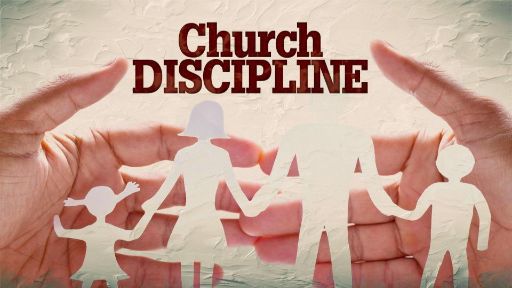-
"Lukewarm Laodicea--The Church Of The Closed Door" Series
Contributed by Robert Leroe on Nov 28, 2017 (message contributor)
Summary: The consequences of complacency
"Lukewarm Laodicea-the church of the closed door" Rev 3:14-22 The Letters to the 7 Churches; Pastor Bob Leroe, Cliftondale Congregational Church, Saugus, Massachusetts
When I lived in Germany, I discovered the most popular soft drink overseas wasn’t Coke, Pepsi or Fanta, but mineral water, and there were hundreds of varieties from which to choose. Normally it was carbonated. When I ordered a bottle at a restaurant in Italy, the waiter asked if I wanted it with or without gas! We’ll see that mineral water plays an important part in the letter to Laodicea.
The courier has reached his final destination. This is the last of the 7 churches. The city of Laodicea was located roughly 45 miles south of Philadelphia. It occupied an almost square plateau several hundred feet high, some 2 miles south of the Lycus tributary of the Meander River. Antiochus II founded the city in the middle of the 3rd Century BC and named it after his wife Laodice. The city was a prosperous center of banking and commerce. It was famous for clothing made from the wool of black sheep, and for a popular eye salve produced by its medical school. The city was so well-off that, unlike Philadelphia, it was rebuilt after the earthquake of AD 17 without any financial assistance from Rome.
In spite of its prosperity, the city had a major strategic weakness-the lack of an adequate and convenient water source. Water had to be piped in using an aqueduct from springs 6 miles away. An enemy could easily cut off the water supply, leaving the city helpless.
This letter to the Laodicean church contains our Lord’s harshest appraisal. He offers no commendation. Jesus begins by identifying Himself in vs 14 as the "Amen", a divine title used by the prophet Isaiah, who speaks of "the God of Amen". This word we use so often in worship is an acknowledgment of that which is true and valid. The trustworthiness of Christ is seen in sharp contrast to the half-heartedness of the Laodicean church. They were blasé, indifferent to the Truth.
In vss 15-16 Jesus tells this church, in a manner they could easily understand, that they were neither hot nor cold, but lukewarm. North of Laodicea was Hierapolis, famous for its hot mineral springs, a popular place to bathe for health reasons (like a spa). South of Laodicea was Colossae, known for its pure, cold mineral waters which were refreshing to drink. In the middle was Laodicea. By the time water arrived by aqueduct to Laodicea it was lukewarm. Hot and cold water were useful; lukewarm water was less-than-refreshing. Sometimes we think of hot as fervent and cold as indifferent-but not in this context. Christ tells the church, "I know your deeds-you are neither hot or cold; I wish you were one or the other!" The church’s lack of devotion was distasteful to the Lord. It had become useless, bland, and nauseating to Christ.
The consequence of complacency is found in vs 16, "I am about to spit you out of My mouth." Jesus is disgusted with nominal, half-hearted commitment. The church that ceases to actively serve God ceases to be a church. Laodicea was a Christian church in name only.
Our Lord’s counsel in vss 17-18 reveals that this congregation was unaware of its true condition. Satan’s most effective weapon is to give people a comfortable, prosperous life. Our true wealth isn’t measured by how well the economy’s doing. Laodicea was "caught up" in the success fantasy, the idea that material prosperity is an indication of spiritual prosperity. They were so well off and self-sufficient that they figured they didn’t need God. Being wealthy isn’t necessarily a blessing.
Jesus counsels these self-satisfied church members to buy 3 things they don’t realize they need. The "gold refined in fire" refers to spiritual riches that have been tested and found to be genuine. Our true wealth is found in Christ. The "white clothes" mentioned are to cover spiritual nakedness. Like Hans Christian Anderson’s story of the Emperor’s New Clothes, these affluent, well-dressed believers were exposed. Their sense of spirituality was an illusion. Laodicea’s woolen textile industry couldn’t provide garments of righteousness. The cause of these problems was spiritual blindness, and so Jesus prescribes (tongue-in-cheek) that they use some of their own local eye salve, to see the truth. The church was penniless despite their bank accounts, naked despite their textile industry, and blind despite their eye medicine. They could manage without an imperial subsidy, but no one can manage without the grace of God.
Jesus next urges the church to "be earnest, and repent" (vs 19). He proves His love and concern by disciplining us. Paul writes to Corinth, "We are disciplined by the Lord so that we won’t be condemned with the world" (I Cor 11:32). A far greater punishment would be for God to simply leave us alone, to let us go our own way and do nothing about our sin. If God hadn’t cared about this church, there would have been no letter to Laodicea. Jesus cared enough to confront.

 Sermon Central
Sermon Central



